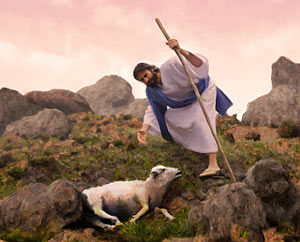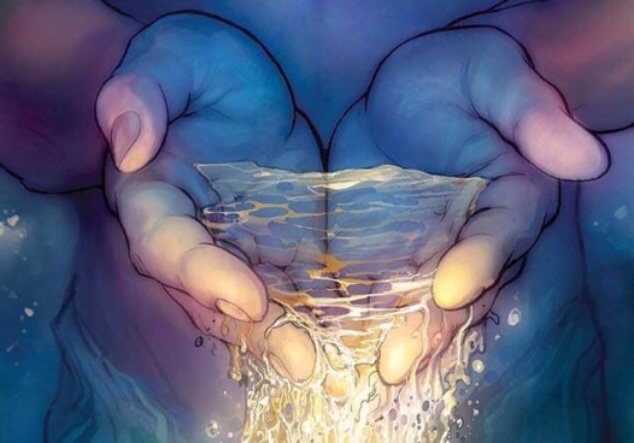Recently, many in the LGBTQI+ community, as well as those who identify as allies, celebrated Coming Out Day. As most of us are probably aware, coming out can be a momentous occasion, but it can also be quite terrifying. And I can understand why; those who are more religiously-inclined tend to shun and scapegoat any and all who are not heterosexual—with God on their side of course—and even those who stand in solidarity with non-heterosexual folks. So needless to say, coming out can be quite the stress-inducing situation in our current culture (and most cultures that have preceded ours).
If you spend more than 20 minutes with me, either in person or on social media, you will no doubt pick up
A few weeks back, right-wing Christian activist, David Barton, made the following statement in hopes of getting Christians to cast their vote for
I can hear my friends now: “Matthew! You’re beginning an article with a Calvin quote?!” Why, yes, yes I am. And here’s why: because, regardless of the many things I disagree with Calvin over, it’s a great quote. Indeed, without knowing ourselves we can’t expect to know God and without knowing God we can’t truly know ourselves. The sad thing is, so many of us don’t act as if this is true. We talk about God in terms of his loftiness, like a king on his almighty white throne. God is omni-everything. And perhaps God is, but that is not my point here. My point is that we then turn around and, in spite of humans being made in God’s image, talk about ourselves as things like “filthy rags,” for instance. We treat others as such too. We do things like insist, with cold faces, how those we don’t like are going to burn in hell for their iniquities. Then we send them there through war and conquest and terror. Assuredly then, I’m afraid we have missed the mark when it comes to knowing God and Self. The proof is in the pudding, unless of course God is a maniacal tyrant just like we human beings tend to be.
I need serious help! You see, I’ve done it again folks. I’ve forced myself to sit through another one of my former pastor’s sermons. But I had to, as I caught wind that for this entire month, the topic du jour is going to be “hell”—as eternal conscious torment of course! God wouldn’t have it any other way (and the Bible clearly states!). So I had to give at least one of the sermons a listen. And I think I will stick to just one, as this one was harder to follow than a Dennis Miller analogy (which, if you don’t know, is a terribly difficult task indeed). The pastor starts out by recounting a very moving story about how his five year old was abducted and, for a time, lost. As the father of a five year old girl myself, it was very heartbreaking to listen to him, holding back the tears, and detailing the event. That being said, once he moved into the meat of the sermon, my empathy quickly gave way to confusion.
What is the ending to the human drama? Will all be reconciled to God in the end? Does God demand an altar, a corpse, and blood? Or, rather, is the Christian God set apart from all the other gods throughout history? All Set Free sets out to answer some of the more difficult questions Christians today are faced with. It will challenge the Augustinian understanding of hell and the Calvinist understanding of the atonement; replacing them with a more Christ-centered understanding of both doctrines. This book will also use the work of René Girard in order to reshape how many understand "what it means to be human." Then and only then should we ask: "Who is God?" Come explore what has become Matthew's theological pilgrimage to this point. Come discover the God of peace.
What I have done, is I have laid out a mock conversation between myself and a questioning lay-Christian. I don’t say that as a slight, but as a description of many Christians who don’t really study theology all that much. This believer’s main contention, as you will see, will be that I cannot possibly conclude that all will be saved, as the bible clearly states that some will in fact be lost (to eternal conscious torment in this case). But, unlike many of my experiences, this conversation will be respectful, and so the fruit of it will be no doubt good. I may not sway Mr. Christian, as I have generically named him, but I will at least have said what I would want to say, all due to his respectful nature.
In this article, I would like to point out 3 crucial problems that arise when one begins with “plain truths” about the book rather than the Christ, the Logos, the “structuring principle of reality.” (John 1:1–5)
I used to be religious. I immaturely believed my beliefs were what led to my salvation. If organized in just the right ways, I would somehow “know” God. In Christianese, I would “be saved.” Of course, this begs the question: “saved from what?” If it is salvation from a monster god—one that abhors us as if we were some loathsome insect—I’m not sure what a damn bit of good my “correct beliefs” were going to do for me.









